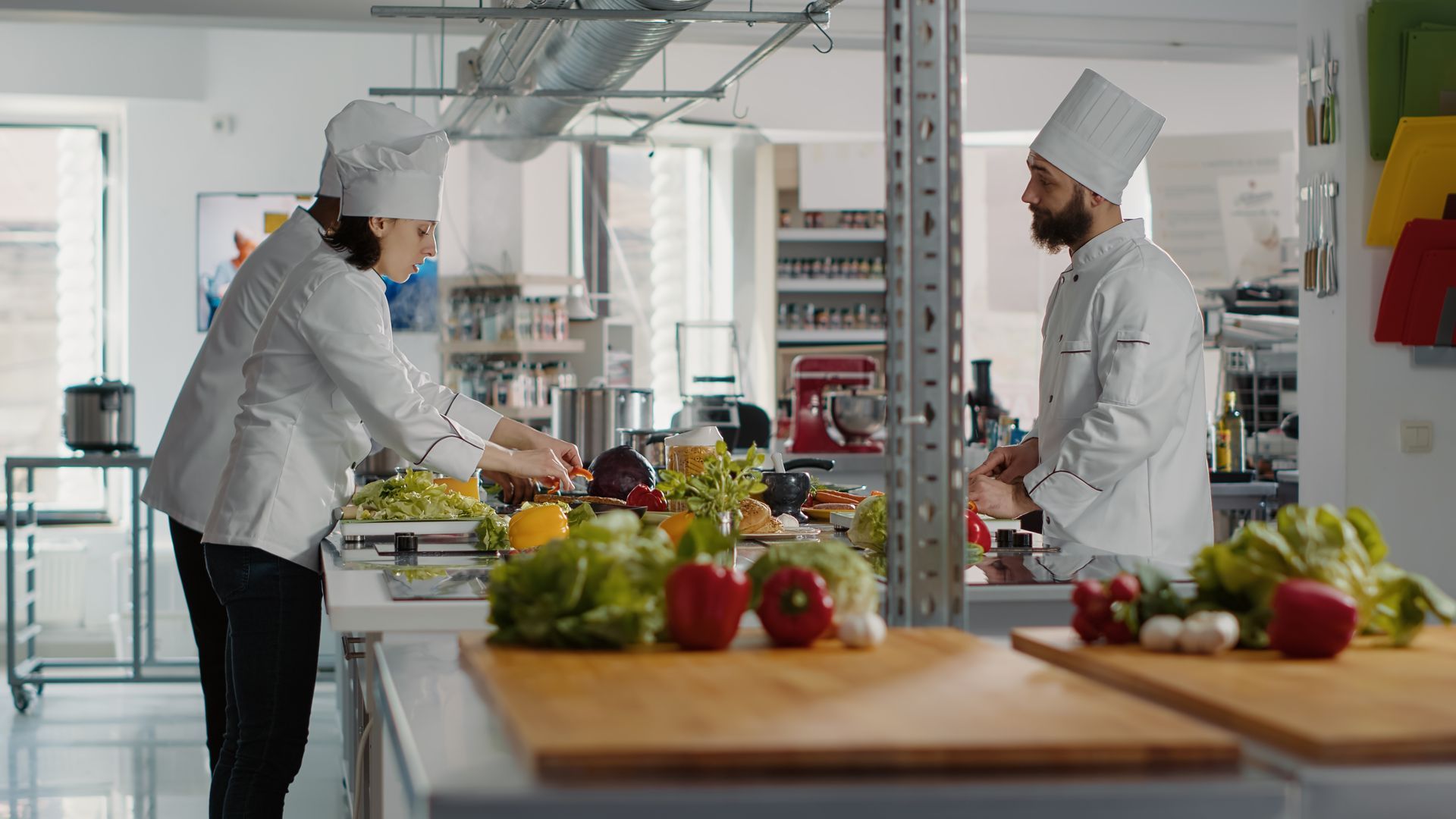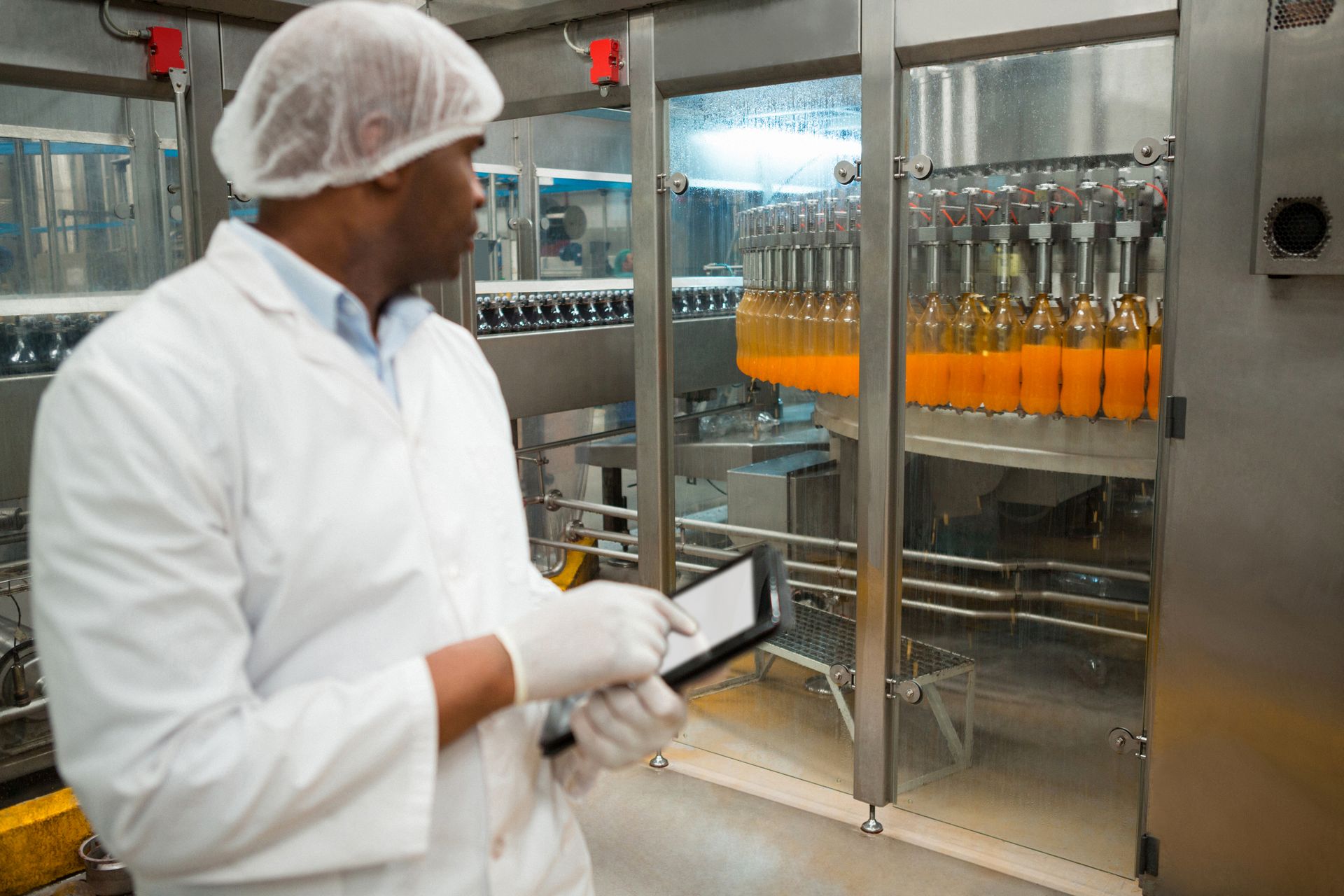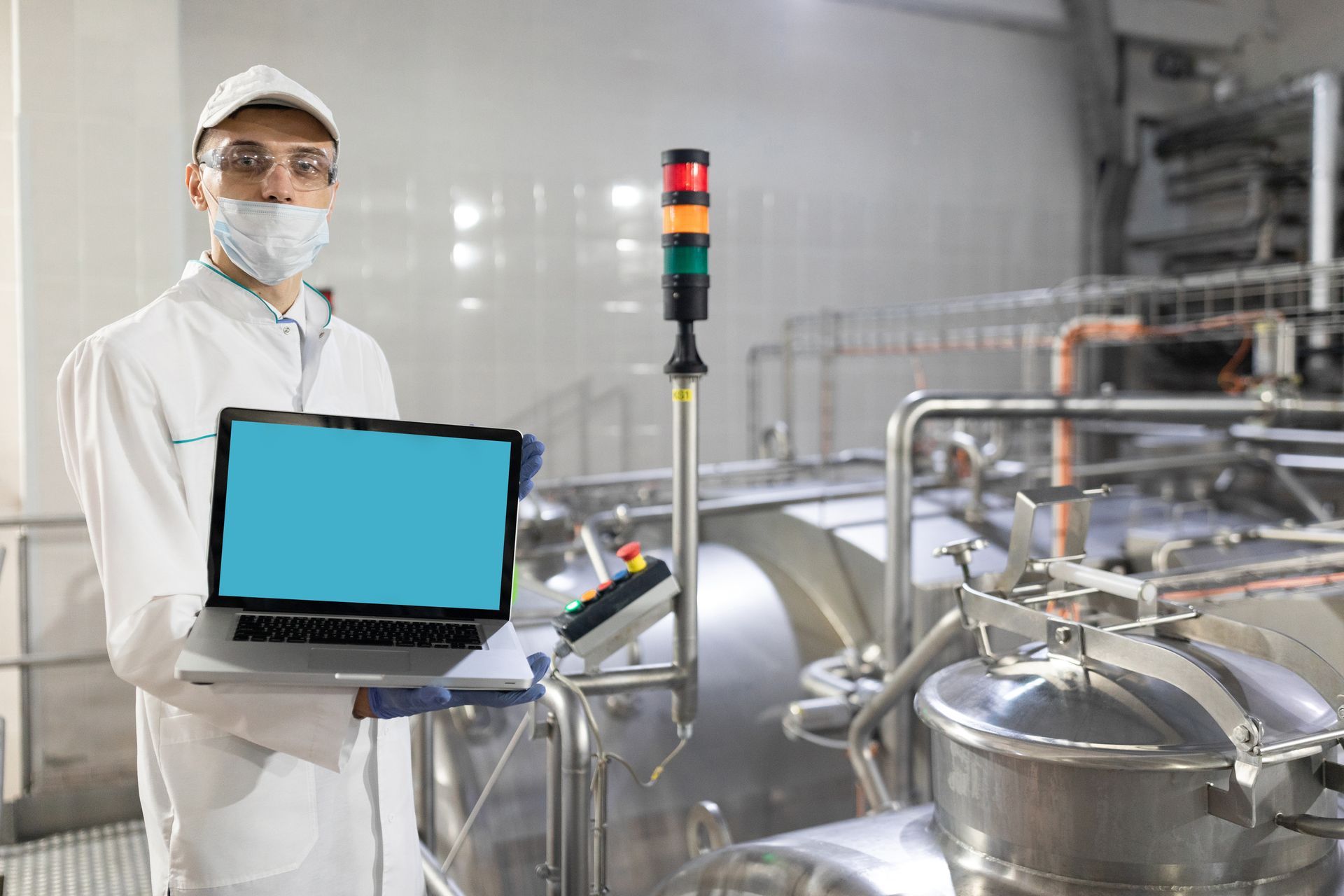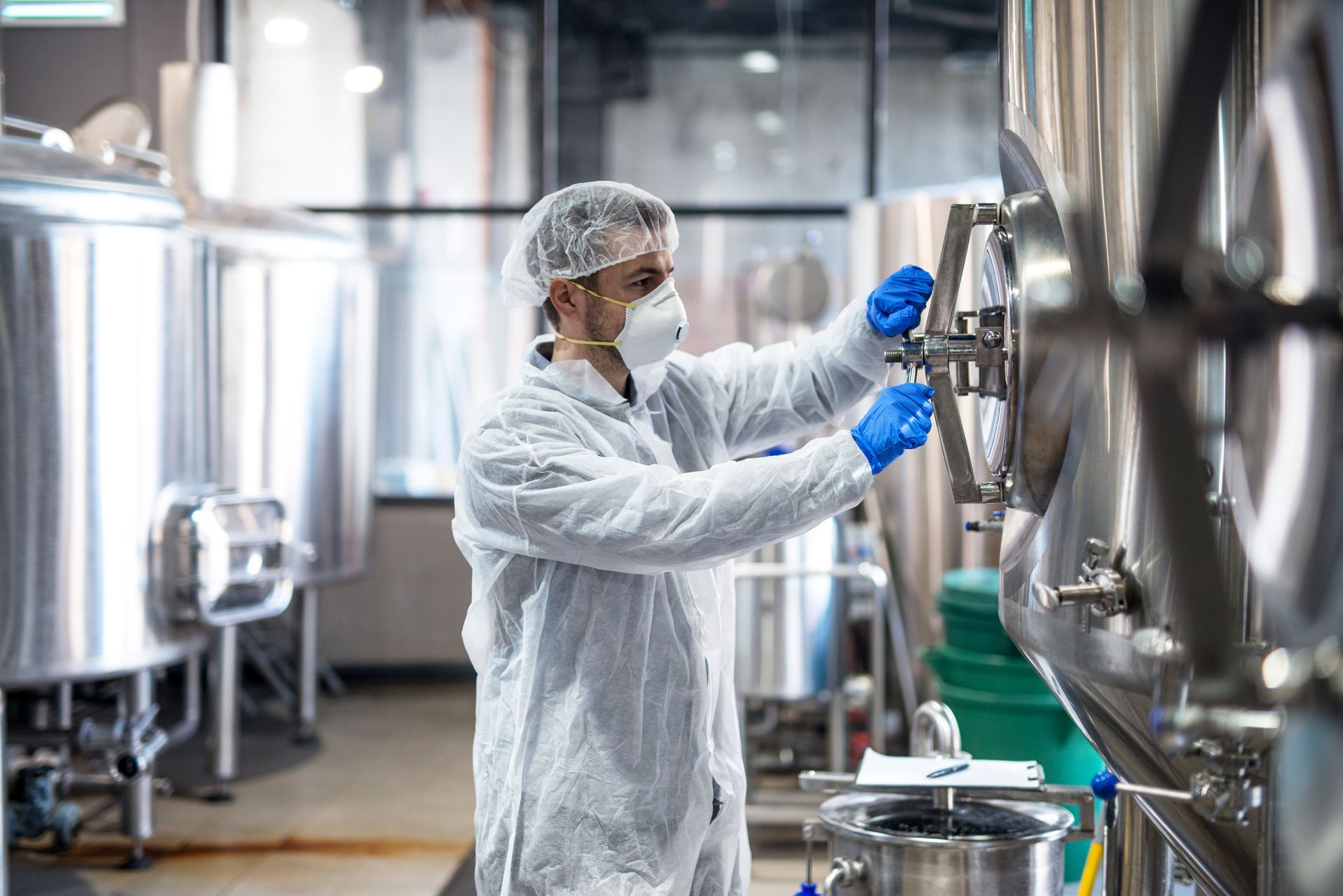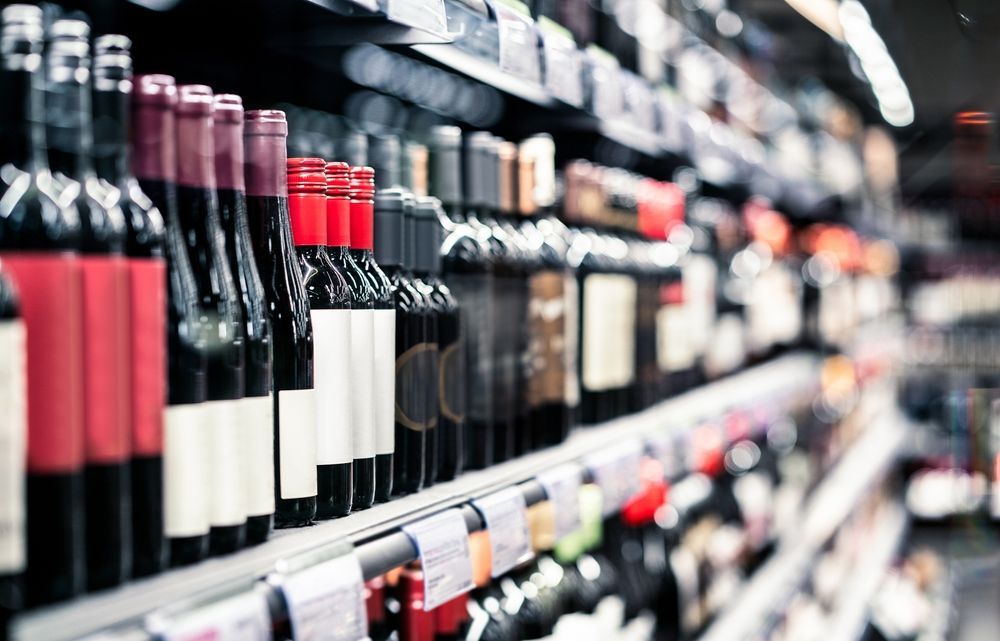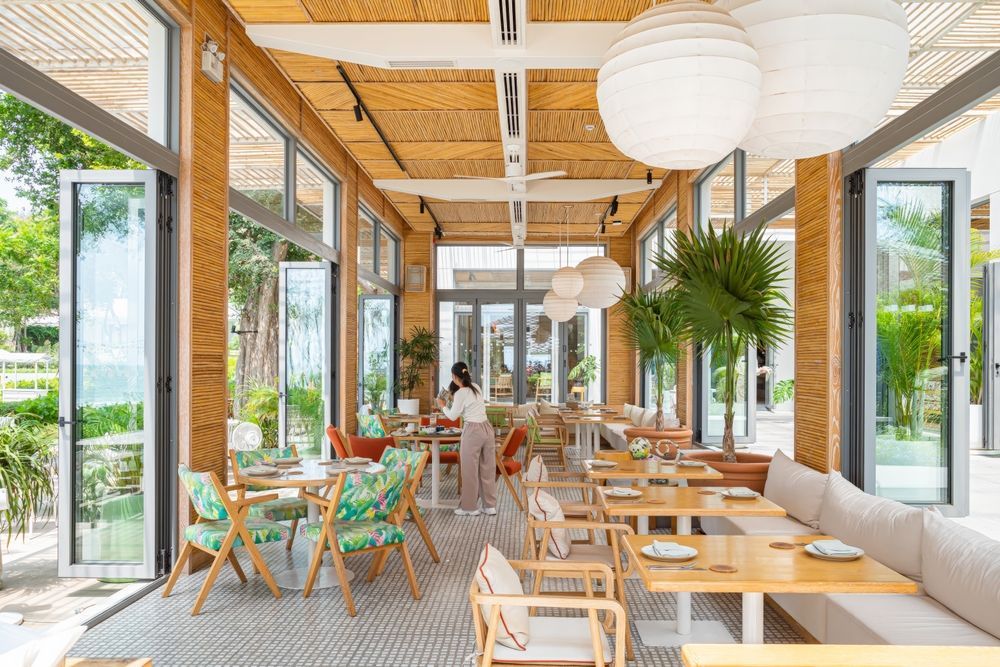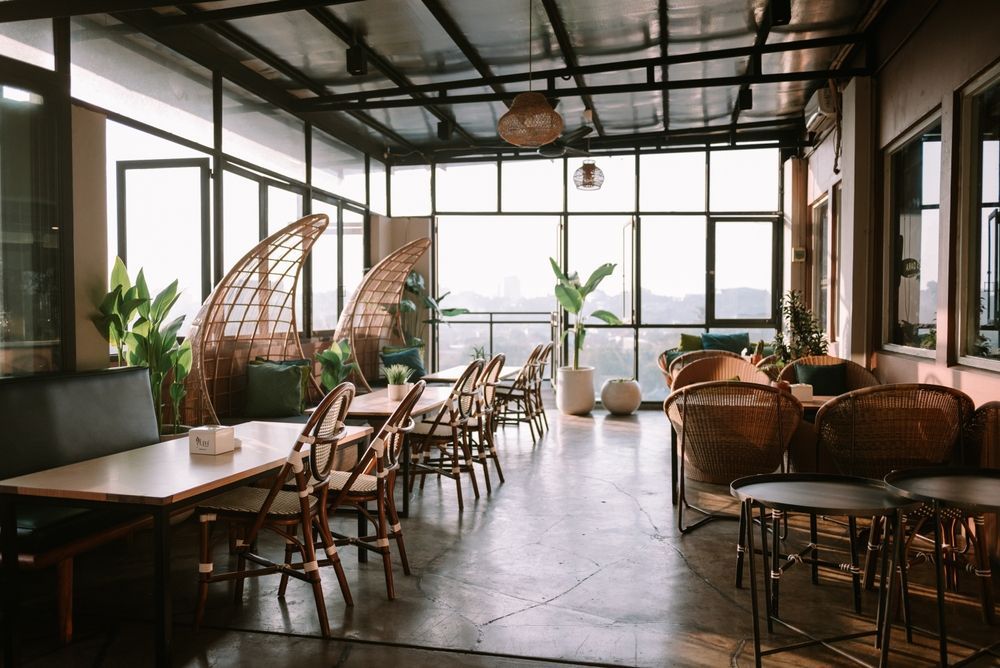Restaurant Insurance in California
Index
We are a Trusted Restaurant Insurance Agency in California
General Liability Insurance for California Restaurants
Workers' Compensation Insurance for California Restaurants
Property Insurance for California Restaurants
How Much Does California Restaurant Insurance Cost?
Get The Best Rates on California Restaurant Insurance
Contact Us
Phone
886-226-4436
Location
9340 Bolsa Ave, Westminster, CA 92683
We are a Trusted Restaurant Insurance Agency in California
Serving guests is more than a hobby for you. It's a way of expressing your creativity and satisfying your customers. You have thus worked hard to establish or plan your restaurant in California, where the food scene is vibrant and diverse.
However, it’s coming to your realization that running a restaurant is not only about preparing meals and hosting, but also about managing the risks and challenges that come with it.
California restaurant insurance is designed to cover your property, equipment, inventory, employees, customers, and reputation. It can help you recover from losses due to fire, theft, vandalism, natural disasters, lawsuits, and more. It can also help you comply with the state and local regulations that apply to your restaurant.
California restaurant insurance is not a luxury, but a necessity for any restaurant owner who wants to succeed and grow in the competitive and demanding food industry.
Western Insurance Marketing Corporation is your best choice for restaurant insurance in California. We have over 50 years of experience and offer customized and affordable insurance plans for all your restaurant needs.
You can get property, liability, workers' compensation, liquor liability, and more from top-rated carriers. You can also pay flexibly to fit your budget.
Call us today and let us protect your restaurant business with confidence and peace of mind.
General Liability Insurance for California Restaurants
General liability insurance for California restaurants covers the legal costs and damages that may arise from third-party claims related to your restaurant operations. For example, if a customer slips and falls on your premises, or if your food causes food poisoning or an allergic reaction, you could be held liable for the medical expenses and other losses of the injured party. General liability insurance can help you pay for these costs and protect your restaurant from financial ruin.
General liability insurance for California restaurants typically covers bodily injury, property damage, personal and advertising injury, and medical payments. However, the coverage limits and exclusions may vary depending on your policy and insurer. Therefore, it is important to read your policy carefully and understand what is covered and what is not. Some common exclusions are liquor liability, employee injuries, auto accidents, intentional acts, and contractual liability.
General liability insurance for California restaurants is not required by law, but it is highly recommended for any restaurant owner who wants to safeguard their business from potential lawsuits.
Workers' Compensation Insurance for California Restaurants
Restaurants are among the most common and hazardous workplaces in California. The most common causes of these injuries and illnesses were slips, trips and falls, contact with objects and equipment, overexertion and bodily reaction, and exposure to harmful substances or environments.
Workers' compensation insurance can protect restaurant owners from the financial consequences of these accidents and provide benefits to their employees. Workers' compensation insurance can cover medical bills, disability payments, vocational rehabilitation, death benefits, and legal costs in case of a claim or lawsuit. Workers' compensation insurance can also help restaurant owners comply with state and federal laws and regulations regarding workplace safety and health.
Workers' compensation insurance rates for restaurants vary depending on several factors, such as the number of employees, the payroll amount, the type of restaurant, the location of the restaurant, the claims history, and the safety programs implemented by the owner.
Business Property Insurance
Business property insurance for California nail salons is a type of coverage that protects the physical assets of a nail salon business from damage or loss due to fire, theft, vandalism, or other perils.
Business property insurance can cover the building where the nail salon operates, as well as the equipment, furniture, inventory, and supplies inside the salon.
Business property insurance can also cover the loss of income or extra expenses incurred if the nail salon has to temporarily close or relocate due to a covered peril. Business property insurance is essential for California nail salons because it can help them recover from unexpected events that could otherwise jeopardize their financial stability and reputation.
Property Insurance for California Restaurants
Property insurance is one of the most important types of coverage you should have as a restaurant owner. Property insurance covers the physical assets of your restaurant, such as the building, furniture, equipment, inventory, and signage. Property insurance can help you recover from losses caused by fire, theft, vandalism, natural disasters, and other perils.
There are different types of property insurance policies available for California restaurants, depending on your needs and budget. Some of the common options are:
- Basic form policy: This policy covers the most common causes of loss, such as fire, lightning, windstorm, hail, explosion, smoke, vandalism, and sprinkler leakage.
- Broad form policy: Accommodates everything in the basic form policy, plus additional perils, such as water damage, falling objects, weight of snow or ice, and collapse.
- Special form policy: Takes care of all risks of physical loss or damage to your property, unless they are specifically excluded in the policy. This is the most comprehensive and expensive type of property insurance policy.
In addition to choosing the type of policy, you also need to decide how much coverage you need for your property. You can choose between:
- Actual cash value (ACV): ACV pays for the replacement cost of your property minus depreciation. This means that you will receive less than what you paid for your property if it is damaged or destroyed.
- Replacement cost (RC): This option pays for the actual cost of replacing your property with new items of similar quality and function. This means that you will receive more than what you paid for your property if it is damaged or destroyed.
Property insurance is essential for any restaurant business in California. It can help you avoid financial losses and keep your business running in case of an unexpected event.
Business Income Insurance
Business income insurance for California restaurants is a form of coverage that can help you recover lost income if your restaurant has to close temporarily due to a covered event, such as fire, vandalism, theft or natural disaster.
This insurance can help you pay for ongoing expenses, such as rent, utilities, payroll and taxes, while your restaurant is being repaired or rebuilt. Business income insurance can also cover extra expenses that you incur to resume your operations as soon as possible, such as relocating to a temporary location or hiring additional staff.
Business income insurance is usually included in a business owner's policy (BOP) along with general liability and commercial property insurance. However, you may need to customize your BOP to suit your specific needs and risks as a restaurant owner in California.
Liquor Liability Insurance
If a restaurant serves alcohol to a customer who then causes harm to themselves or others, the restaurant could be held liable for the damages. Liquor liability insurance helps pay for the legal fees, medical bills, and other expenses that may arise from liquor liability.
Liquor liability insurance can also cover other risks associated with serving alcohol, such as assault and battery, property damage, and employee theft. Some policies may also include coverage for liquor license defense, which helps pay for the legal costs of defending a restaurant's liquor license in case of a violation or suspension.
Liquor liability insurance is an essential part of running a safe and responsible restaurant in California. It can protect a restaurant from financial ruin and legal trouble in case of an alcohol-related incident. It can also help a restaurant maintain its reputation and customer loyalty in the competitive food industry.
Commercial Auto Insurance
If your restaurant has a vehicle that you use for business purposes, such as delivering food, catering events, or transporting supplies, you need commercial auto insurance to protect your business from liability and property damage claims. Commercial auto insurance is different from personal auto insurance, which only covers you when you drive for personal reasons.
Commercial auto insurance can cover the following costs if you or your employees are involved in an accident while driving a business vehicle:
- Medical expenses for you, your passengers, and other injured parties
- Repair or replacement costs for your vehicle and other damaged property
- Legal fees and settlements if you are sued for causing the accident
- Lost income if you are unable to work due to the accident
The amount of coverage you need depends on several factors, such as the type and value of your vehicle, the nature and frequency of your business trips, and the level of risk you face. The minimum liability limits for commercial auto insurance in California are:
- $15,000 for bodily injury or death per person
- $30,000 for bodily injury or death per accident
- $5,000 for property damage per accident
However, these limits may not be enough to cover the full cost of a serious accident. You may want to consider higher limits or additional coverages, such as collision, comprehensive, uninsured/underinsured motorist, or medical payments.
How Much Does California Restaurant Insurance Cost?
The cost of restaurant insurance in California depends on several factors, such as:
- The size and type of your restaurant
- The location and value of your property
- The number and nature of your employees
- The amount and type of coverage you need
- The deductible and limit you choose
- Your claims history and credit score
The average cost of restaurant insurance in California is $500-$2500 per year for general liability coverage, $740 per year for commercial property liability coverage, and $1,380 per year for workers' compensation coverage. However, these are only average estimates, and your actual cost may vary depending on your specific situation.
To get an accurate quote for your restaurant insurance in California, you should contact a licensed insurance agent who can assess your needs and compare quotes from different insurers.
Get The Best Rates on California Restaurant Insurance
Let our skilled insurance agents help you find the best rates on California restaurant insurance. Whether you own a fine dining establishment, a fast-food joint, or anything in between, we have the right coverage for your business.
Contact us today and get a free quote in minutes.
How much is $1,000,000 liability insurance a month?
The cost of $1,000,000 liability insurance for a business, such as a restaurant, can vary depending on several factors, including the size of the business, location, and the level of risk involved. On average, restaurant owners might pay between $50 to $300 per month for this level of coverage. However, it’s important to request a customized quote to get an accurate price based on your unique needs.
How much does insurance cost for a restaurant per month?
The cost of restaurant insurance per month depends on several factors, including the size of the restaurant, the types of coverage required, and its location. On average, a small to medium-sized restaurant might pay anywhere from $300 to $1,500 per month for comprehensive coverage. This typically includes general liability, property insurance, workers' compensation, and other essential protections.
Why is restaurant insurance so expensive?
Restaurant insurance can be more expensive due to the specific risks involved in running a restaurant. Common risks include kitchen fires, slip-and-fall accidents, foodborne illness outbreaks, and employee injuries. Because of the variety of coverage required to protect the business, including property, liability, and workers' compensation, premiums can add up. Additionally, high-risk areas such as urban locations or areas with high foot traffic can further influence the cost of premiums.
How much is a $2 million dollar insurance policy for a restaurants business?
A $2 million dollar insurance policy for a business, including restaurants, is typically more expensive due to the higher coverage amount. On average, businesses may expect to pay anywhere from $500 to $3,000 per month for this level of coverage, depending on their specific circumstances. Factors like the type of business, location, and overall risk will influence the final price. For restaurant owners, comprehensive coverage might include general liability, property insurance, and workers' compensation.


